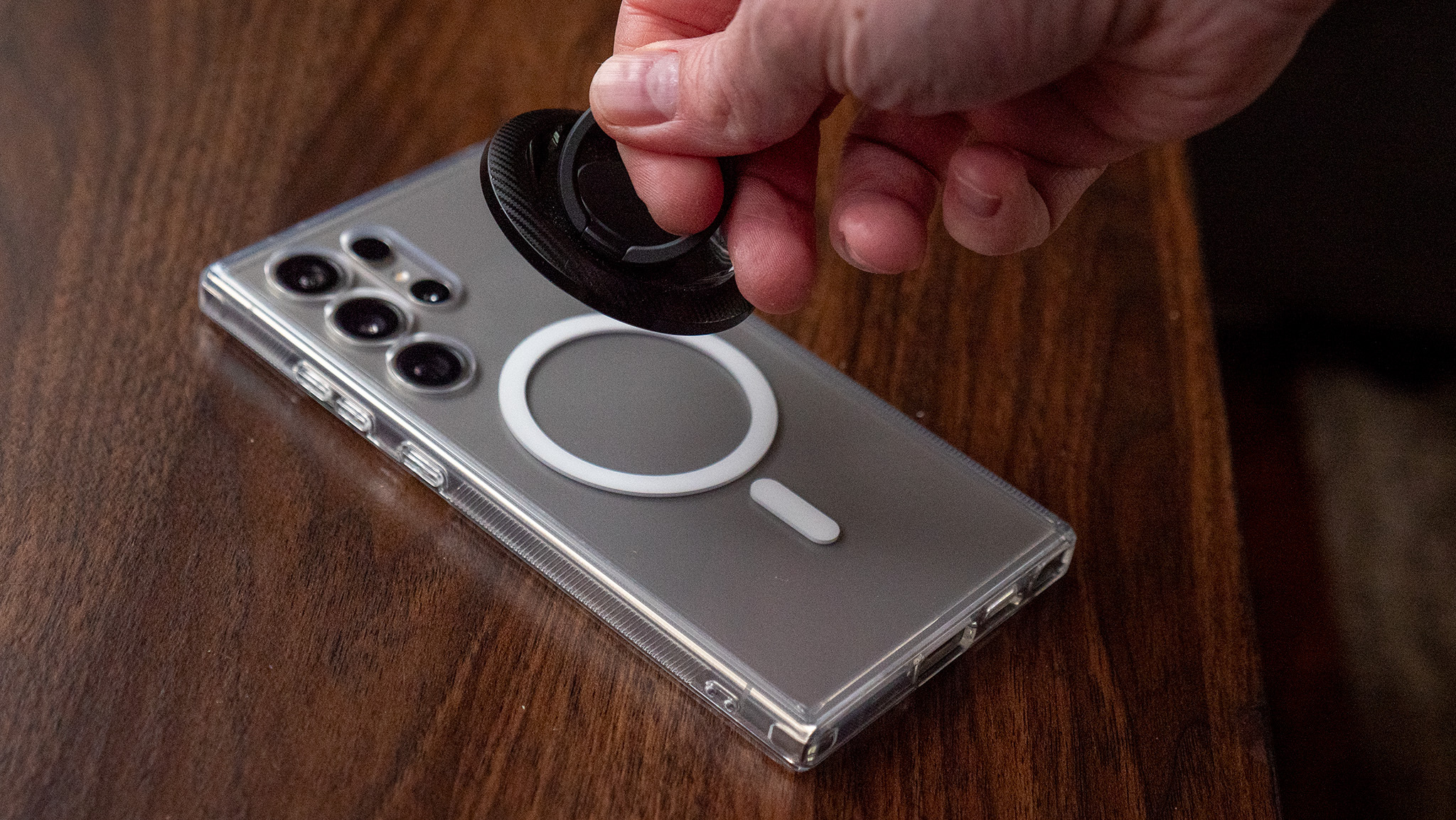iPadOS 16 and Stage Manager aim to narrow the gap between the iPad and Samsung DeX on Galaxy Tablets
Proper multitasking comes to the iPad in a way only Apple could do it.
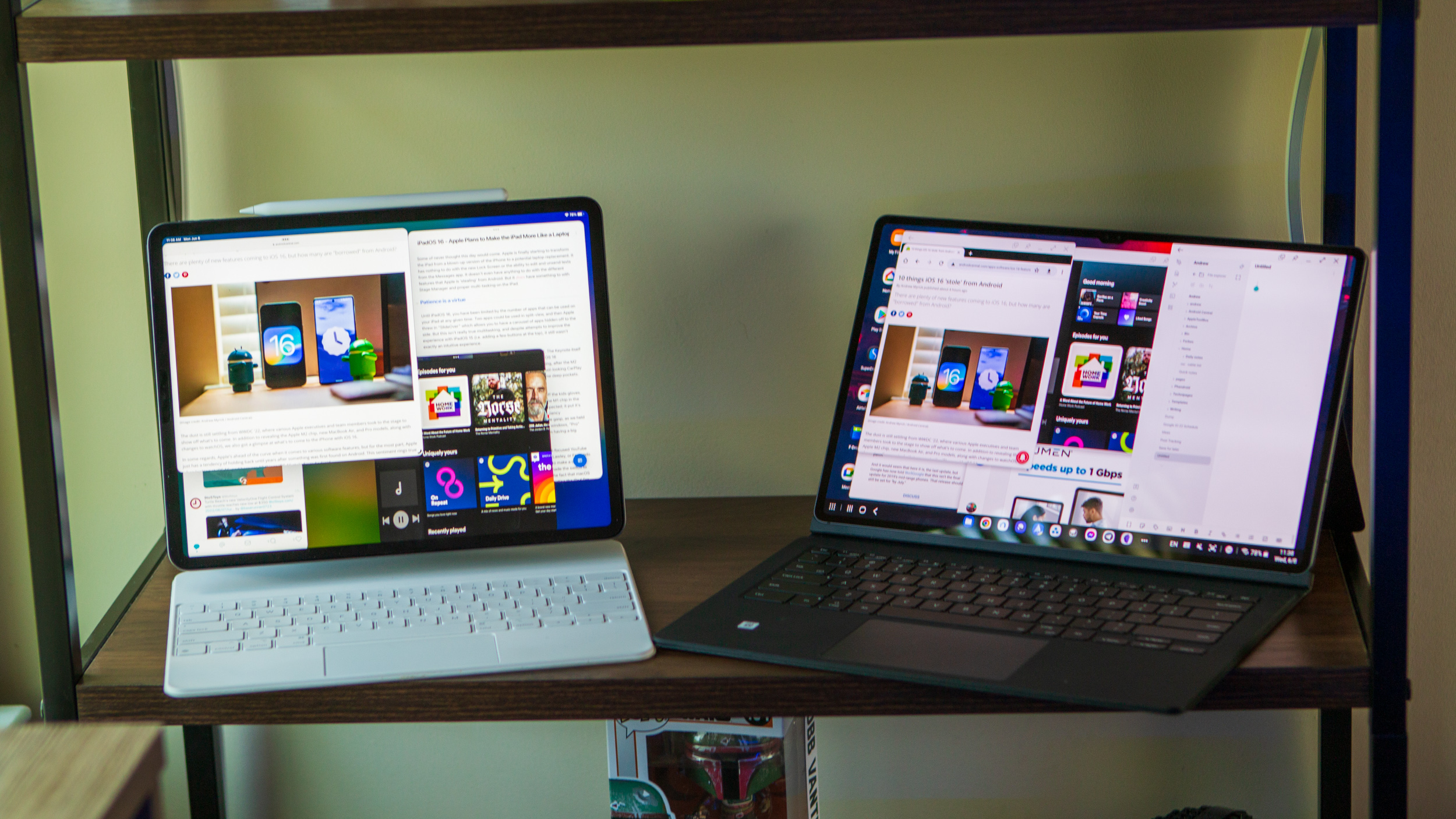
Get the latest news from Android Central, your trusted companion in the world of Android
You are now subscribed
Your newsletter sign-up was successful
Some never thought this day would come. Apple is finally starting to transform the iPad from a blown-up version of the iPhone to a potential laptop replacement. It has nothing to do with the new Lock Screen, or the ability to edit and unsend texts from the Messages app. It doesn’t even have anything to do with the different features that Apple is "stealing" from Android. But it does have something to do with Stage Manager and proper multitasking on the iPad.
Patience is a virtue
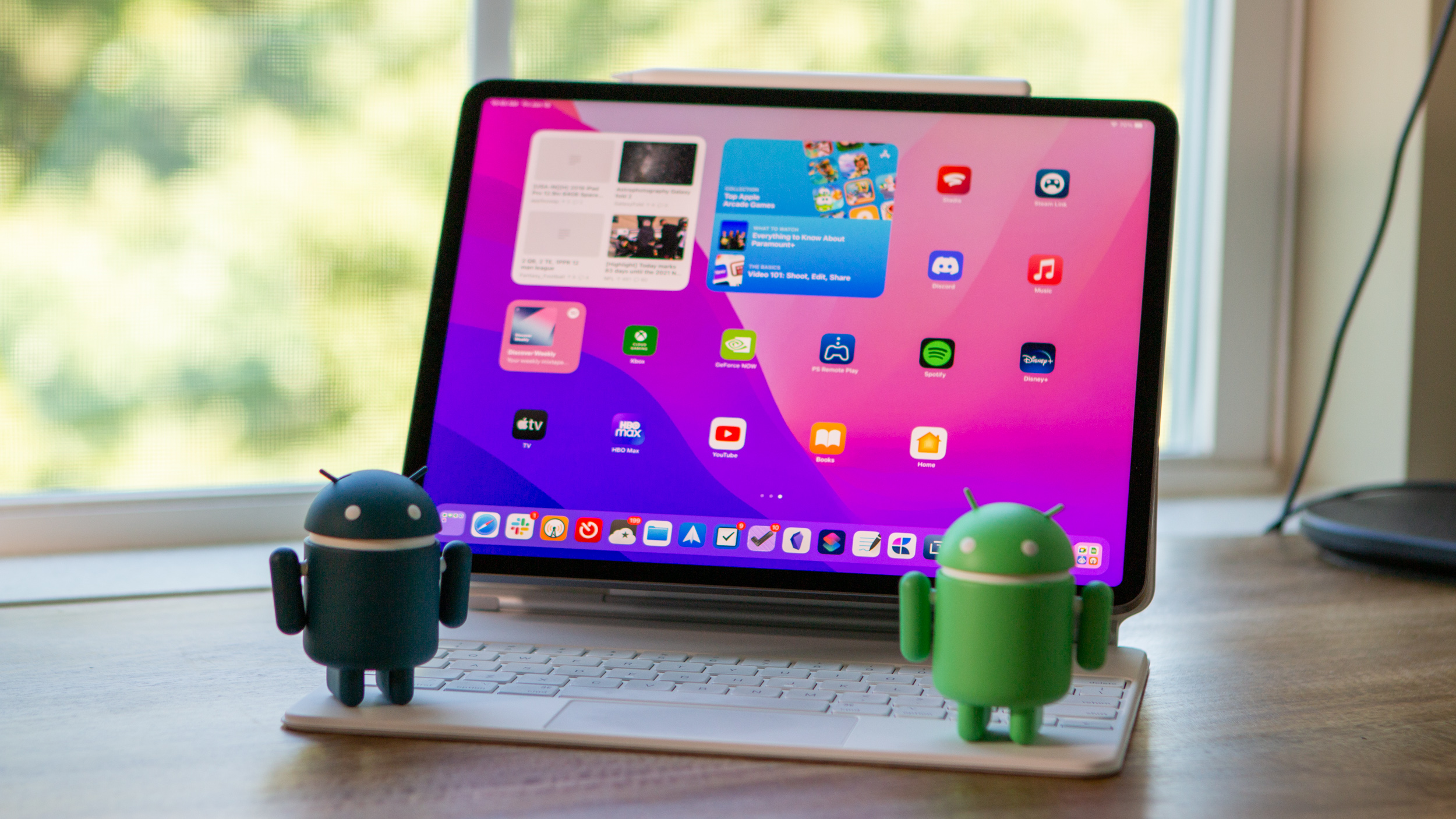
Until iPadOS 16, you have been limited by the number of apps that can be used on your iPad at any given time. Two apps could be used in split-view, and then Apple threw in “SlideOver,” which allows you to have a carousel of apps hidden off to the side. But this isn’t really true multitasking, and despite attempts to improve the experience with iPadOS 15 (i.e. adding a few buttons at the top), it still wasn’t exactly an intuitive experience.
But then Stage Manager took the proverbial stage at WWDC ‘22. The Keynote itself felt like it was just dragging on forever, but Apple saved the iPadOS 16 announcement until the very end. It came after the iOS 16 unveiling, after the M2 introduction with an all-new MacBook Air, and after that really cool-looking CarPlay concept that won’t be available for anyone unless you’ve got some deep pockets. The whole experience was just... different.
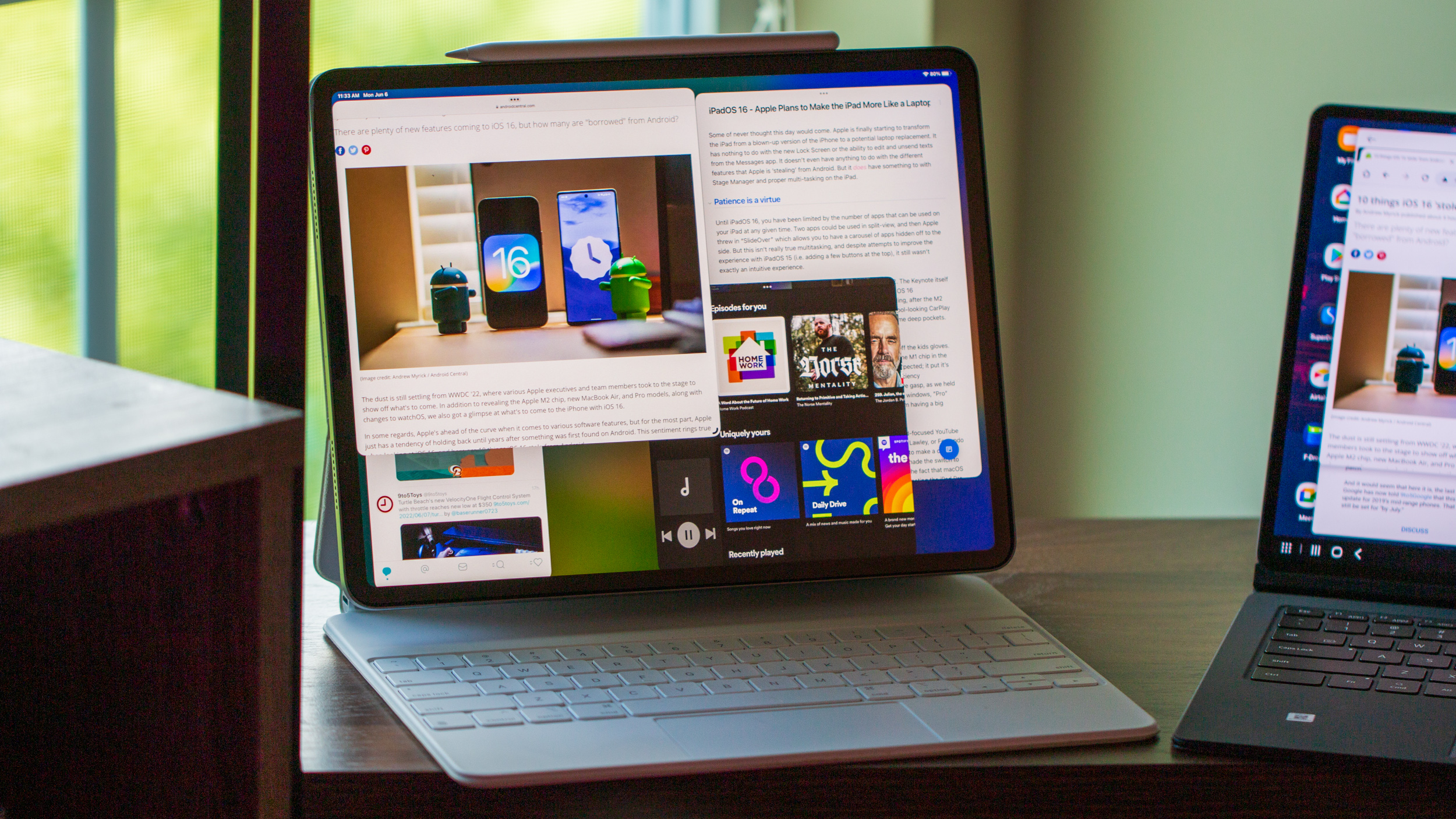
For years, the iPad Pro users have been begging Apple to take off the kid's gloves. This was further amplified following Apple’s implementation of the M1 chip in the 2021 iPad Pro series. Apple did the most logical thing that we expected; it put its new desktop-class CPU, complete with all of the power and efficiency improvements, into its most powerful iPad. There was a collective gasp, as we held our breath to see if Apple was finally going to bring multiple app windows, ”Pro” apps like Final Cut, or anything else that would take us away from having a big iPhone with more power.
Before WWDC ‘22, if you were to look around at the various iPad-focused YouTube channels and creators, like Federico Viticci at MacStories, Christopher Lawley, or Fernando Silva, the general sentiment has been that it was time for Apple to make a change with the iPad Pro. All three of the creators I’ve mentioned have made the switch to the Mac in some form or fashion recently, and it’s partly due to the fact that macOS is just a more flexible platform. Apple hand-cuffed its users, alienating the iPad Pro faithful for years, leaving us wondering whether a real change was ever going to happen.
The waiting game finally paid off.
Stage Manager isn’t what we expected
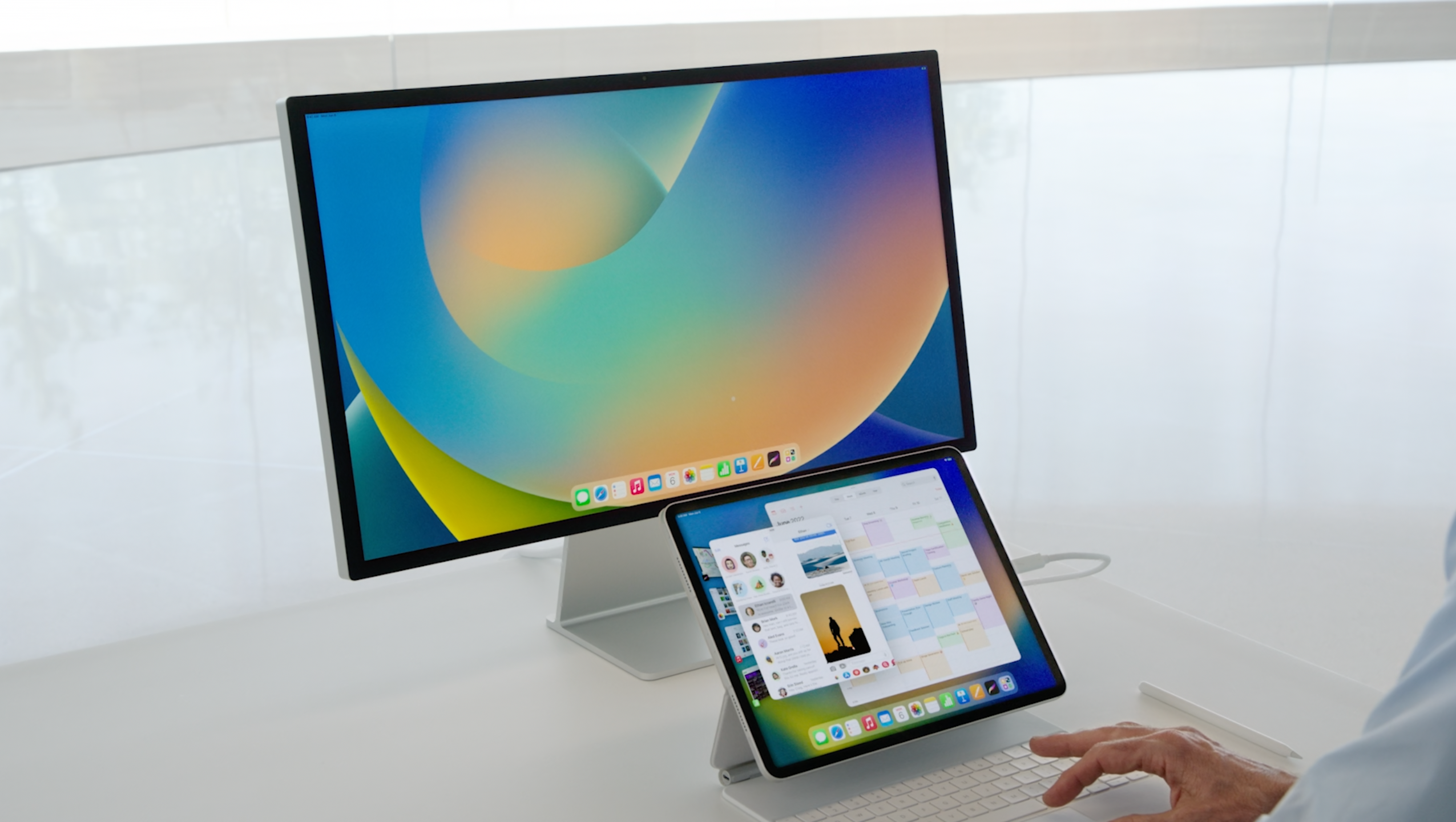
Stage Manager is the first step in that change. So what is this new feature that has so many people excited? Simply put, it’s a revamped multitasking experience for iPadOS 16 (and macOS Ventura), complete with the ability to use up to four app windows on your screen at the same time. These app windows can be grouped together, allowing to get rid of the dual-app split-screen mode that has been around for far too long.
Get the latest news from Android Central, your trusted companion in the world of Android
But Stage Manager also unlocks a vastly-improved experience when connecting your iPad to an external monitor. As the feature has only just become available via the first iPadOS 16 Developer Beta, there are still some quirks about it. Resizing app windows is not a fluid experience; you can’t open multiple instances of the same app, and moving apps between groups can be a real pain. But it’s Developer Beta 1, and Apple should be able to get these quirks fixed ahead of the final release sometime this fall.
Stage Manager isn't what I had in mind when I envisioned app windows on the iPad. But this is where Apple excels, at least most of the time. The company took an idea and transformed it into something that it can market the hell out of, while also giving its faithful fanbase a new feature that it's been wanting for years.
Gate-keeping at its finest
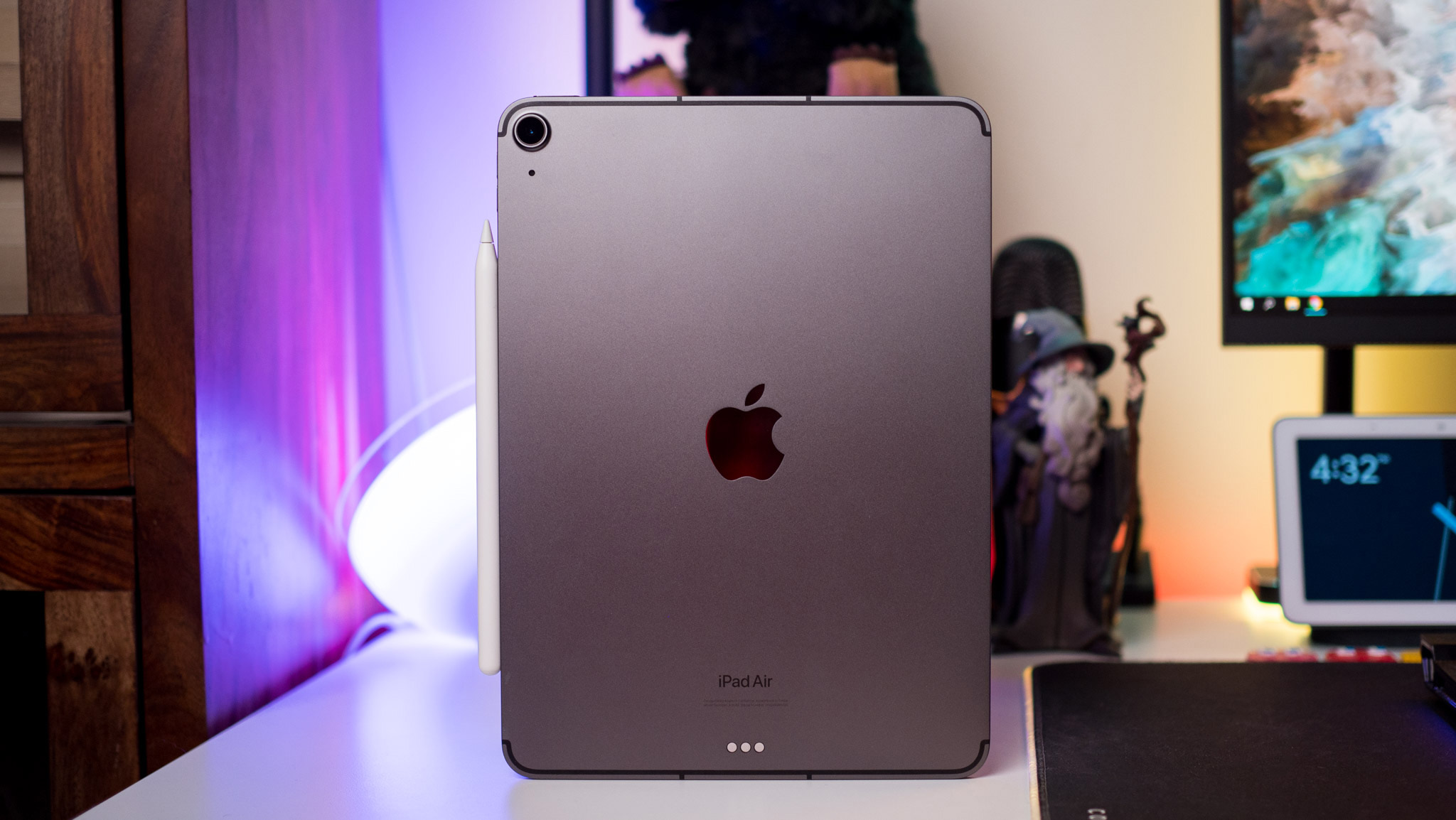
Whenever there are new and (relatively) ground-breaking new features from Apple, there always seems to be a catch. And that sentiment rings truer than ever with Stage Manager on iPadOS 16.
For whatever reason, and of course Apple didn't explain why, Stage Manager is limited to three iPad models:
- 2022 iPad Air
- 2021 11-inch iPad Pro
- 2021 12.9-inch iPad Pro
What do those three iPads have in common? M1. As it currently stands, these are the only options you have if you want to be able to use Stage Manager. It's likely been done in an effort to force those with older iPad models to upgrade. There are many who are still using the 2018 iPad Pro line, simply because there weren't enough differences with the 2021 versions to warrant an upgrade.
Sure, the 12.9-inch iPad Pro uses a Mini-LED display as opposed to the Liquid Retina panel. But that doesn't really matter in the grand scheme of things, as it only means that your iPad won't last as long. And the 11-inch version sticks with the same panel as its predecessor, so there's even less of a need to upgrade that version.
Apple created a reason to upgrade your iPad with the introduction of Stage Manager.
For as much praise as Apple gets for its continued software support when it comes to older devices, this is not a great look. Locking software features behind new hardware isn't a new practice. Regardless of what platform it happens on, it's always dejecting to see.
So why the excitement?
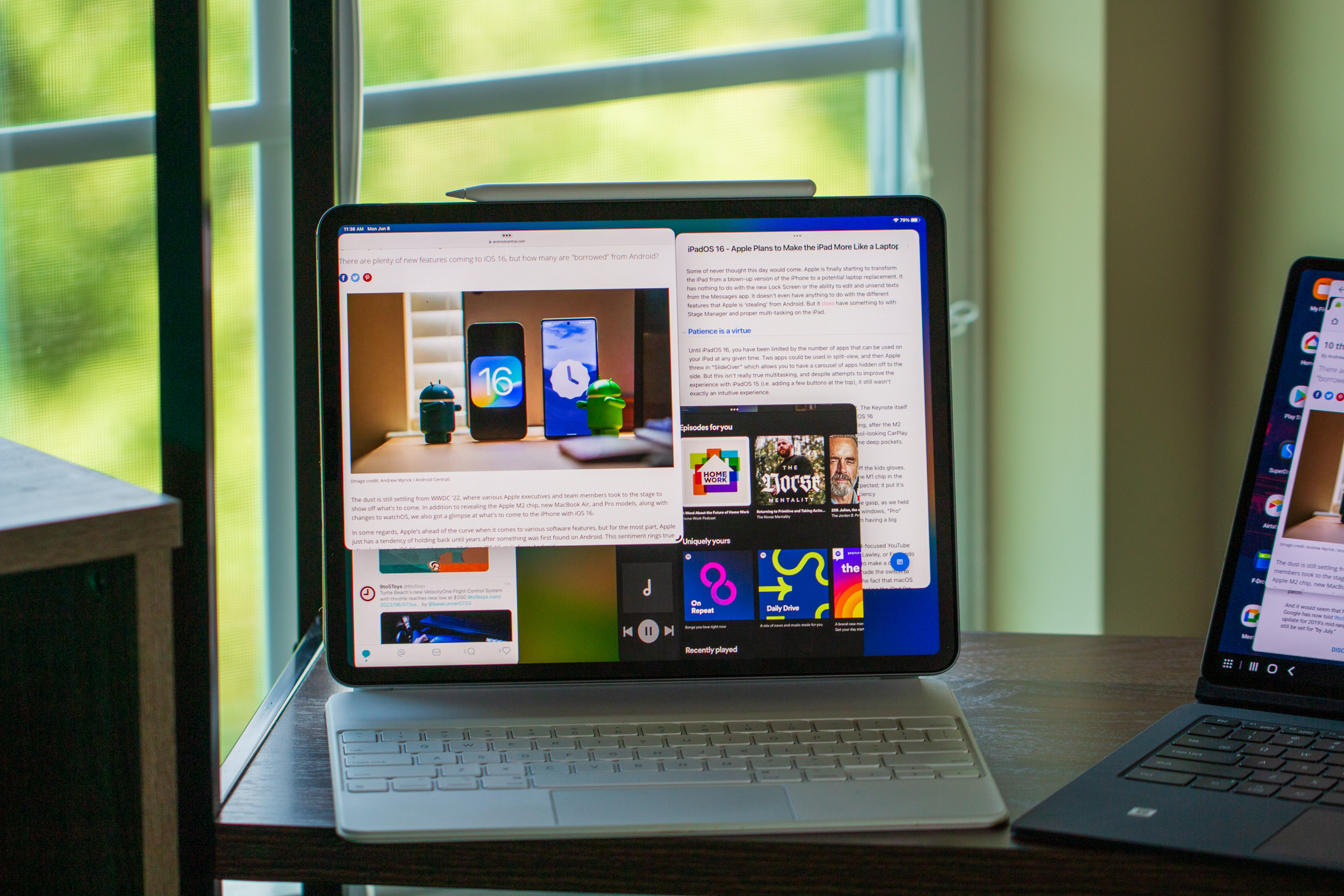
Personally, I wasn't sure that this was ever going to actually come. I was ready to give up the idea of using my iPad as a more-portable work machine compared to my 2021 MacBook Pro. There was even a part of me that toyed around with the idea of getting rid of my iPad Pro for good.
But that's not going to happen now. For those who have a compatible iPad model, iPadOS 16 unlocks the true potential of what's possible with the M1 chip in an iPad. You can plug it into an external monitor, while continuing to use the excellent Magic Keyboard.
A total of eight windows can be open at the same time, and Apple even introduced RAM Swap, which utilizes the ultra-fast onboard storage to speed up the experience. Of course, this is a feature we've been seeing implemented on many of the best Android phones, but it definitely comes as a surprise to see Apple borrow this too.
Can Stage Manager and the iPad finally compete with Samsung DeX?
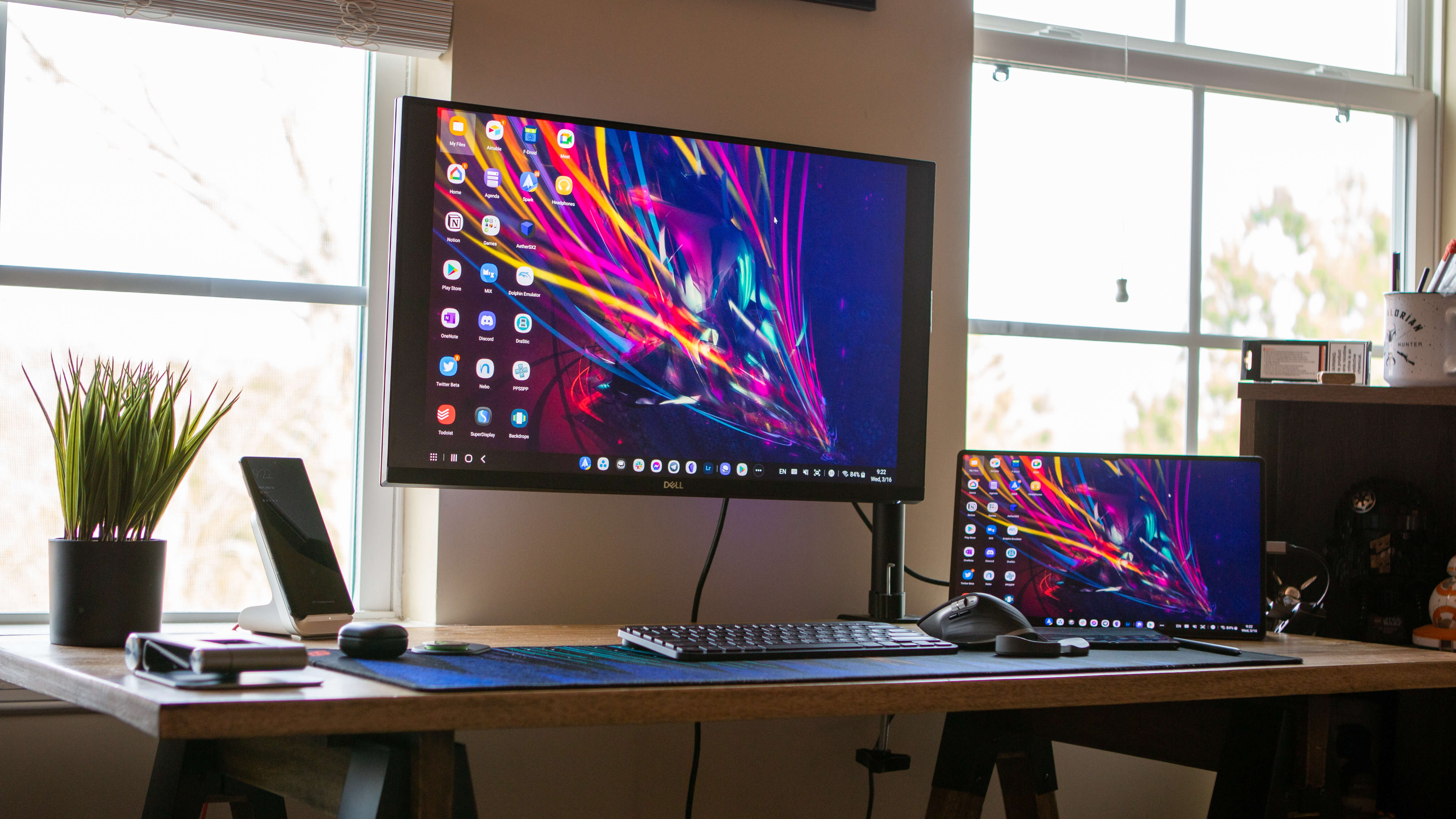
So is Apple really planning on cannibalizing sales of its brand-new M2-powered MacBook Air? Not in the slightest. That's likely part of the reason why Stage Manager is available on the Mac with macOS Ventura. It provides feature-parity in the space, as opposed to only making it available to specific devices.
In the time that I've spent with the Galaxy Tab S8 Ultra, I've come to realize that Samsung DeX is the closest we're going to get to a laptop replacement on Android. DeX has been around since the Galaxy S8, and continues to be iterated upon with every major software release.
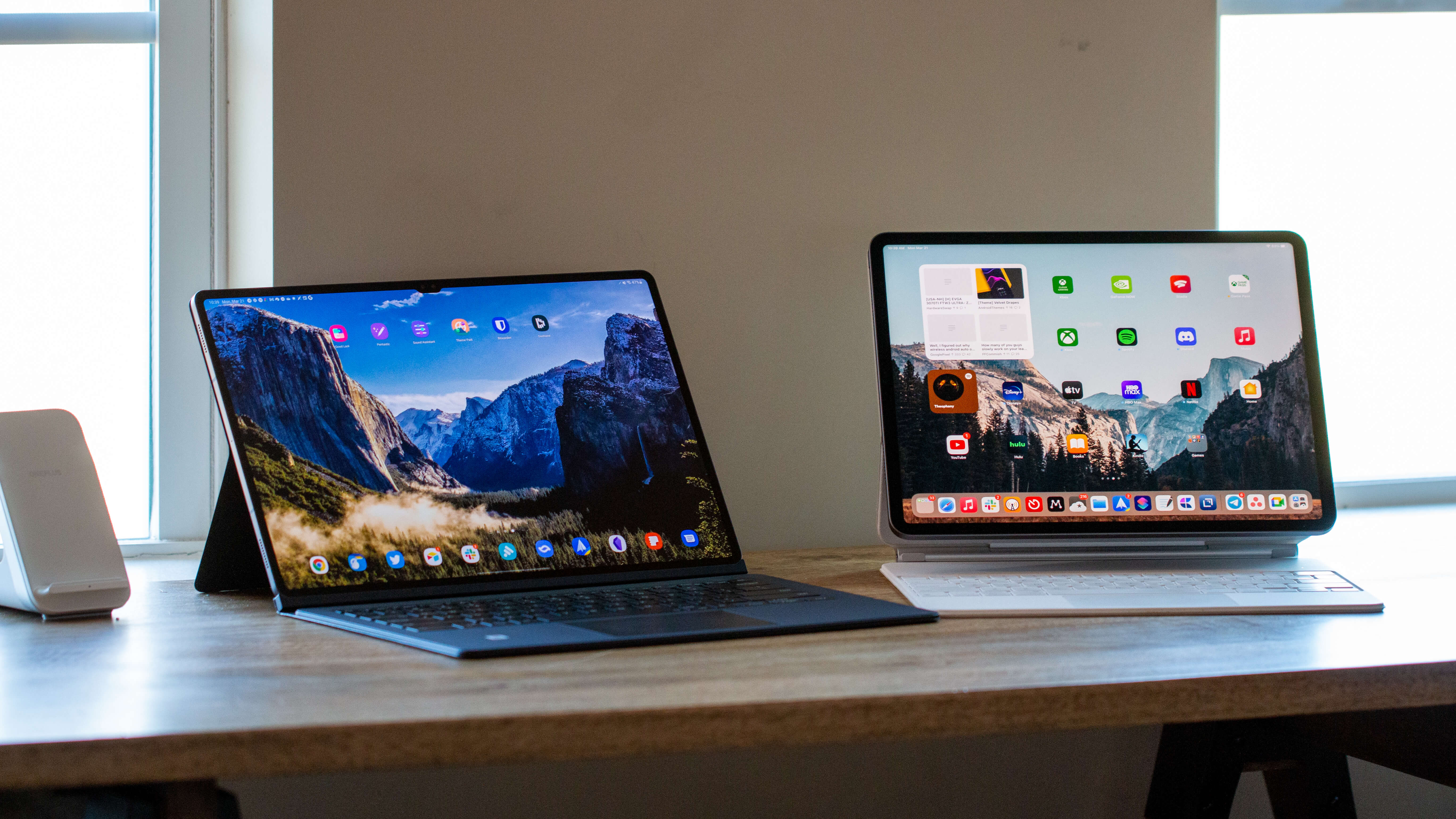
Samsung has a massive head start with multi-window multitasking on tablets, but there's room for improvement. Some apps still won't open when using them in DeX mode, which forces you to go back to the "normal" view and can bring your productivity to a crawl.
It's too early to tell whether Apple will be able to gain any ground against Samsung. Developer Beta 1 is just that: An early beta, and developers haven't had any time to update their apps to support the floating and resizable windows. We'll be sure to dive deeper into Stage Manager vs Samsung DeX in the coming months, but we're just excited for more competition in the space.

Andrew Myrick is a Senior Editor at Android Central. He enjoys everything to do with technology, including tablets, smartphones, and everything in between. Perhaps his favorite past-time is collecting different headphones, even if they all end up in the same drawer.
